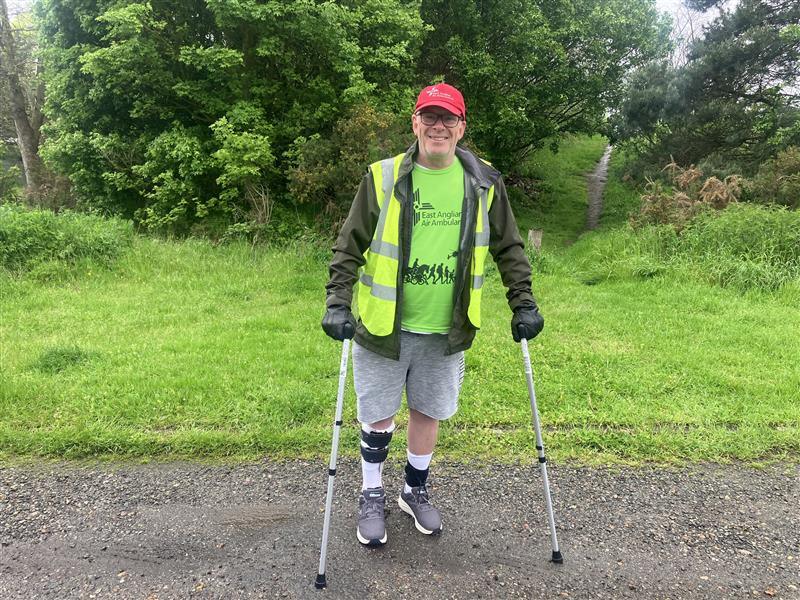Woman told she had MS after foot stopped working
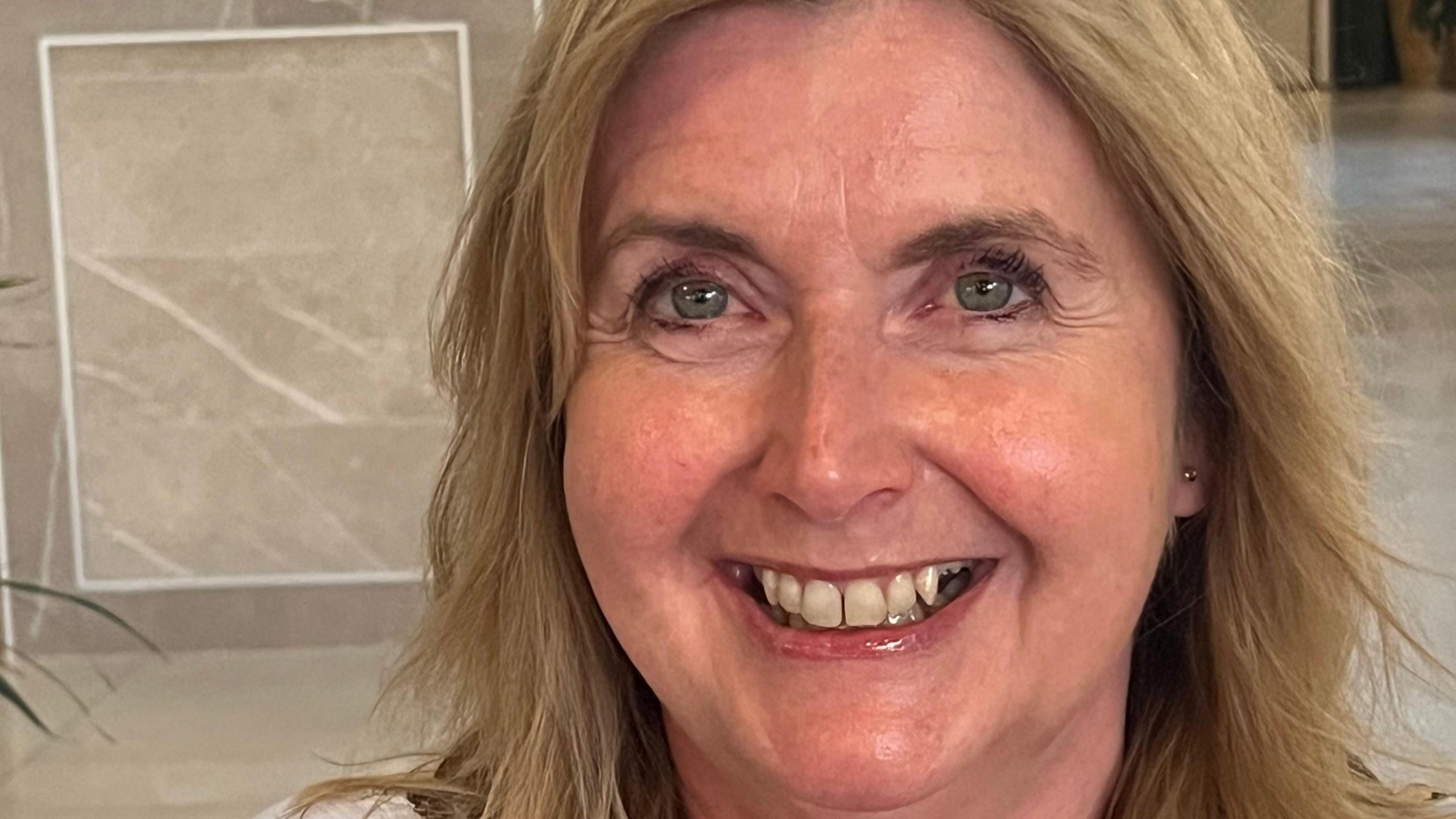
Alison Ridley has been living with MS for the past 20 years and is keen to raise awareness
- Published
Alison Ridley was living her life as normal when one day, her foot stopped working and she was left struggling to walk.
The mother-of-two from Ipswich was later diagnosed with multiple sclerosis, external (MS).
Mrs Ridley, 59, has now been living with the disease for 20 years.
She hopes that by sharing her story during MS Awareness Week - which runs April 22-28 - she can show the impact the disease has on a person's life.
When she was working as a lecturer two decades ago, Mrs Ridley "suddenly came over feeling really ill, hot and sweaty".
After thinking she had picked up a bug, she still felt unwell for the next few days.
It was not until she tried to use a treadmill at the gym that she thought something was seriously wrong.
"All of a sudden when I was running on the treadmill my foot started dragging, it hadn't ever happened before," Mrs Ridley explained.
She put it down to tiredness and the next day when driving her daughter home from a tennis event in Hertfordshire, she felt her right foot slipping off the pedal.
"I thought that was a bit odd and then my right hand was slipping off the steering wheel," Mrs Ridley continued.
"I said to my daughter to keep talking to me as I thought I was really tired."
Mrs Ridley decided to contact the doctor who ordered tests and told her to rest.
Potential brain tumour
A few days later, however, Mrs Ridley was trying to leave the house when she found she was unable to move her foot and hand, and the doctor was phoned.
"By that night, I was in hospital with a suspected stroke or a potential brain tumour," Mrs Ridley said.
"I then spent 10 days in hospital having lots of different tests and I suddenly found myself dumped in the world of MS."
Tests ruled out both a stroke and brain tumour, and a month later she received the MS diagnosis.
"I kept clinging onto that hope that I hadn't got it and something else was going on," she said.
"I was most concerned for our kids who were five and 10."
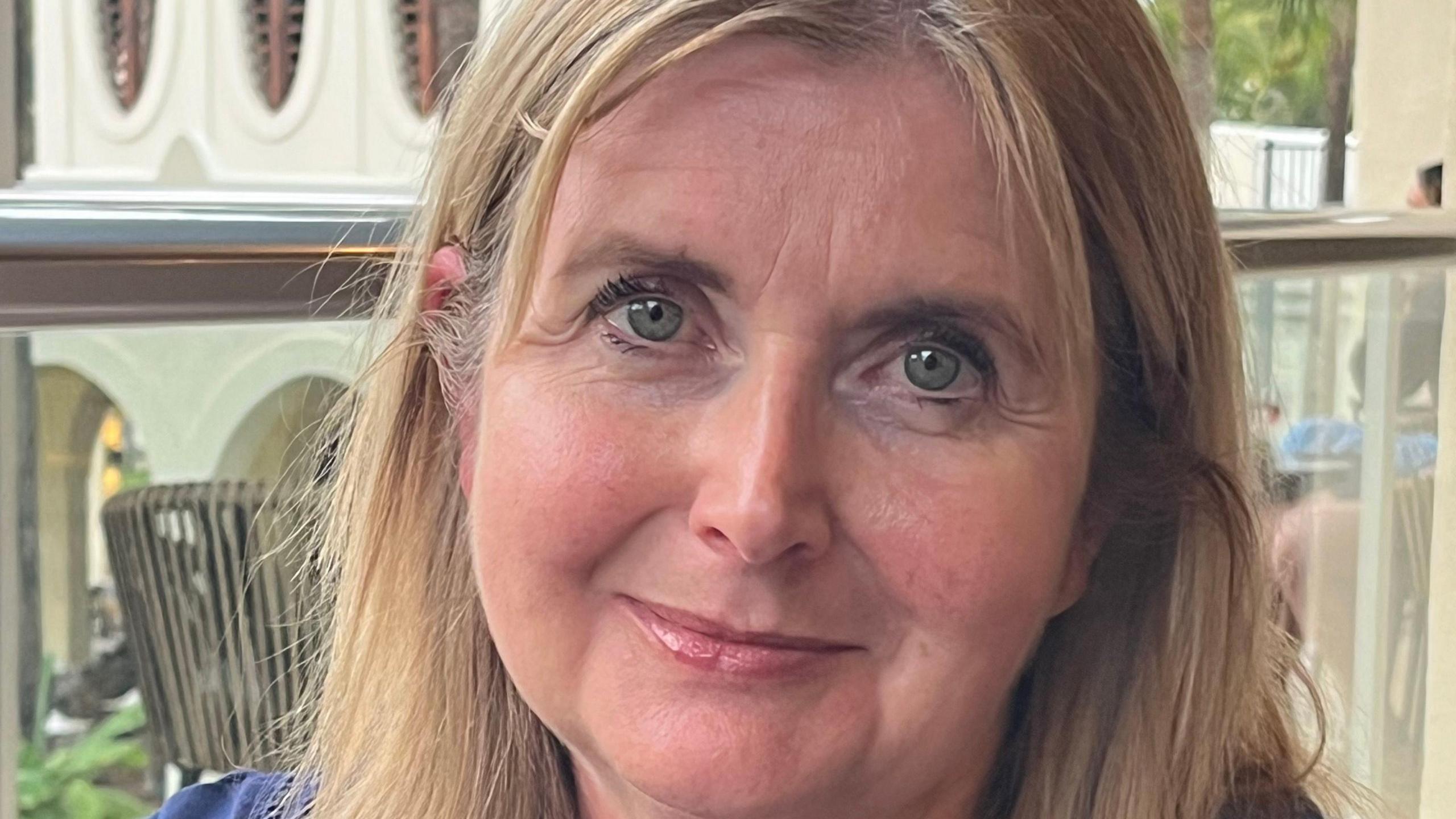
Mrs Ridley urged anyone with MS to seek help and make use of MS nurses who can provide crucial support
Life then changed for Mrs Ridley and her family.
She recalled a family camping holiday to France that unfortunately had to be cut short when she was left unable to walk.
About three years after her diagnosis she was given medication to help manage the disease, but there is no cure for MS.
Covid was similarly a tough time after people were unable to see MS nurses and immunosuppressant drugs used to ease the condition meant they had to be even more cautious around others.
Today Mrs Ridley struggles to walk, and she uses a walker or electric scooter when she is outside.
Yet, despite these challenges, she is incredibly positive about the future and now helps others with the condition through the charity MS Society, external in Suffolk.
"I try to keep very positive and I'm sometimes accused of being too positive," she said.
"I want to give something back to people."
The Suffolk support group, external allows people with MS to meet up while also hearing from researchers about potential clinical trials to help find a cure.
'Don't be scared'
During MS Awareness Week, Mrs Ridley wants to educate more people about the disease.
"It can affect every part of your life and it is rubbish," she said.
"I know very little can be done, I'm aware of that, but there are some opportunities out there for people.
"Tiny little issues can be improved."
She also urged those with the disease to make use of MS nurses who can provide crucial support.
"We're lucky in Suffolk that we've got a lot of great MS nurses who can help you and they can help signpost you.
"But tell your GP that you need help and you need attention - push for it, don't be scared."
MS Society, along with MS Together, MS Trust, MS-UK, the Neuro Therapy Network, Overcoming MS, and Shift.ms, has launched its MS Unfiltered campaign this week to share real life stories from those living with the disease to highlight the issues they face.
The Department of Health and Social Care told the BBC it had invested £272.1m into neurological research between April 2018 and March 2023 via the National Institute for Health and Care Research.
“In addition, NHS England’s Neuroscience Transformation Programme is supporting NHS organisations to deliver the right service, at the right time, for people with MS,” a spokesperson added.
Follow East of England news on Facebook, external, Instagram, external and X, external. Got a story? Email eastofenglandnews@bbc.co.uk, external or WhatsApp us on 0800 169 1830
Related topics
Stories like this
- Published9 March 2024
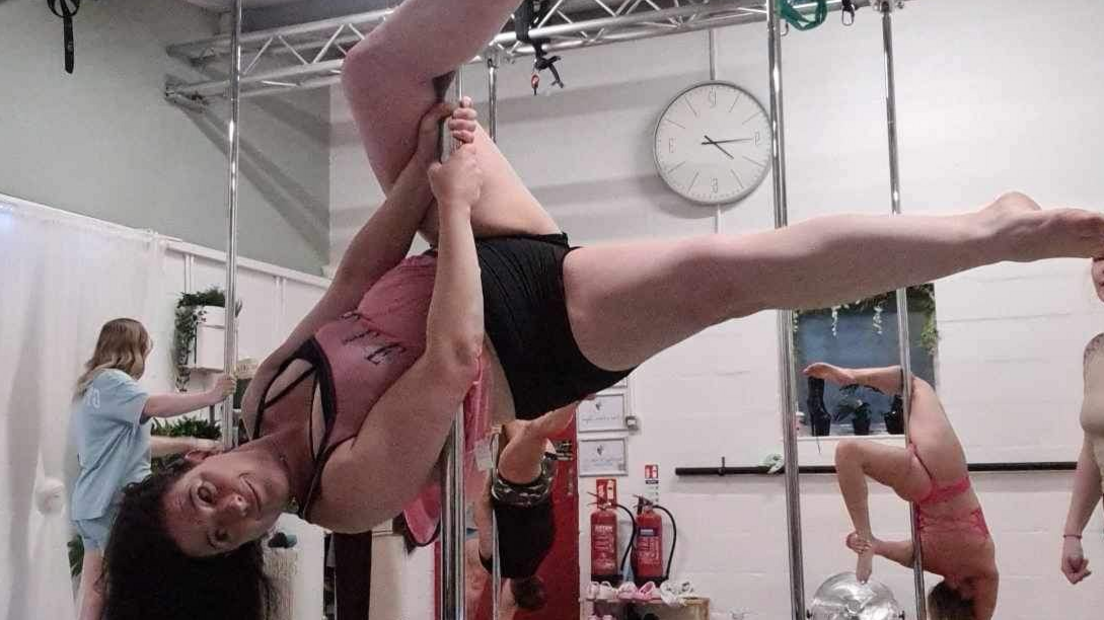
- Published10 January 2024
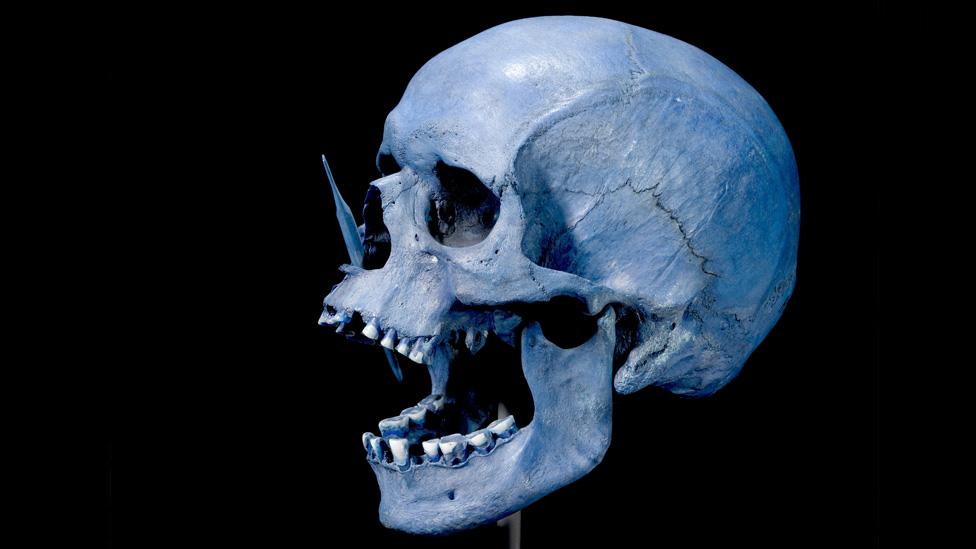
- Published12 May 2023
